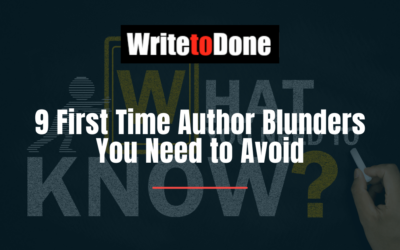To the uninitiated, writing can seem like a pretty easy gig.
You just spend the day watching television and surfing the web. To get more readers to add to your already fanatic fan base you saunter over to your computer to dash off a few brilliant paragraphs, send them off to an editor, and you’re done for the day.
This is the life, you sigh as your fix yourself a mojito and sit back to wait for your fan mail and royalty checks.
Living the dream.
Obviously, we know it doesn’t work exactly like that. We know the stress of looming deadlines, the agony of rejection, and the uphill trudge that writing can be on those days when doing what you love just doesn’t feel like that much fun.
And there always those niggling questions in the back of your mind: “Is this good enough? Will any one read it? If they do, will they care? Even if they care, will they pay me for it?”
It can be enough to make you nostalgic about that summer landscaping job you had in high school.
Almost. 😉
Now here’s the good news: quite a lot of that anxiety can be lifted by thinking just a little bit like a marketer. You can *know* that the people who read your work will respond to it, get excited about it, and share it with their friends.
Here’s how…
Even When You Work for Yourself, You Aren’t Really Working for Yourself
Every smart marketer knows that they may be the creative mind behind an operation – but they aren’t working for themselves, they’re working for their client.
The client must be thrilled, entertained and satisfied – but even the client isn’t really the boss. The real boss is the end-user. The person who will see the material and decide to take action.
That client = your editors.
That end-user = your reader.
It can be difficult, after years of training and studying, trying to find your true, most genuine voice, to start having to give more weight to what they want to read instead of what you want to write.
Fortunately you don’t have to deal with this difficulty – if you spend just a little time figuring out who out there is most likely to love what you have to say.
In marketing, we call this finding your ideal customer. In writing, it’s finding your ideal reader. Who is going to be most likely to respond enthusiastically to your voice, and where are they?
If you can get in front of them and build a relationship with them, both you and they will benefit.
First Impressions are Formed in Seconds – Don’t Waste Yours
Once you’ve identified your ideal reader, and positioned yourself where they can find you – you still have to grab their attention, and you’ve only got a tiny fraction of time to do that.
People tend to skim headlines until they find something that piques their interest, so you’ve got to make sure that your titles, covers, headlines and any advertising you do is riveting.
This can feel like groping in the dark, but remember, you’ve just discovered who your ideal reader is. You know them, what they like and what interests them.
You can leverage your understanding of your ideal reader by putting yourself in their shoes and imagining “what will attract me the most?”
You can also research what they are interested in by checking out the blogs and news sites they read, and looking at which kinds of posts (and which headlines!) are most popular with them.
You’ll have to experiment with different styles, but eventually you’ll find the formula that works for you and reels the readers in.
Doing a great job? You’ll probably annoy someone along the way…
The best writing is informed by passion, and when you’re passionate about something, the odds are that other people are as well.
However, they aren’t always passionate in the same way you are.
For every person who loves The Walking Dead, there’s another person who despises it. The same is true of pretty much any topic. You see this all the time in marketing – the best advertisements are the ones that cause controversy.
This wasn’t as much of an issue twenty, fifteen, or even ten years ago, when popular response to writing was somewhat more nebulous and hard to pin down. With the advent of the internet and blogs, however, every opinion gets aired, sometimes vociferously.
Someone is going to hate every word you write.
And that’s a good thing.
If you can stir someone up enough that they go out of their way and tell you how awful you are, you can rest assured that you’ve stirred up many more to respond positively. And they will look out for more of your work in the future.
Whatever Your Medium, You Can ALWAYS Get More Readers
It doesn’t matter if you’re a fiction writer, a movie critic, a current events reporter or anything else – having more fans of your work is a good thing.
The more people you have relationships with, the more people will be eager to read and buy your work.
The more fans you acquire, the more credibility you have with larger organizations like news media, academic institutions and publishers.
Imagine you have just completed a manuscript and want to either have it traditionally published or do it yourself.
If you have a small, lukewarm audience, publishers might not be willing to take a chance on you, and there simply won’t be enough people to make self-publishing worthwhile.
But if you have a massive, raving audience hanging on to your every word, publishers will scramble for you, and you’ll have the freedom to go our own way if you want to.
So whatever your preferred genre or style is, it’s worth stepping outside your box to find more people who will respond to you.
But You Can’t Spend All Your Time Searching…
It’s easy to say you need to get more readers, and another thing entirely to go out and get them.
Which is why you need a plan. A system that will point you in the right direction, and give you the steps you need to do it quickly and efficiently so you can spend more time writing (for more people!).
That’s why I developed the Write Like Freddy training program which is especially geared towards writers who want to leverage their strengths to find and get in front of new audiences – the fast and easy way. 😉
Which of these lessons do you apply? Or have you successfully applied any other lesson? Share your thoughts in the comments!


















